Business
Expert Decries Lack Of Mous Among Multinationals In Onne

Elder statesman and foremost Environmentalist, Engr. Olu Wai – Ogosu, has attributed the brewing conflicts between oil companies and their host communities in the Niger Delta to the absence of effective regulatory policies.
Engr. Wai-Ogosu said the policies such as Memorandum of Understanding (MOU) and the breach of other existing agreements signed by the companies and their host communities have been responsible for the conflicts.
The elder statesman said that despite the numerous companies operating in Onne, their was no meaningful host community engagement as no MOU was signed with the people of Onne.
Wai-Ogosu who described the practice in Onne and Niger Delta as, “corporate negligence “ called on all multinationals and corporate organisations operating in the Niger Delta to introduce a more practical community engagement model and implement the Memorandum of Understanding (MOUs) signed with their host communities.
In an interview with The Tide, yesterday in Port Harcourt, he pointed out that, “modern industry practices require that both the oil firms and the host communities operate in mutual agreement as well as synergy through a well established community engagement model that would be subject to upward reviews to suit evolving developments to avert crisis.”
He noted that oil related conflicts has been a predominant feature of the Niger Delta over the years and urged prospecting oil firms and other corporate organisations in the Niger Delta to learn from the experiences of the past to improve their host community relations by contributing meaningfully to the development of their host communities.
The Environmental expert, said that the host communities were major stakeholders in the oil and gas business, noting that their active participation in the sector was an elixir to smooth business operation.
“It’s certain that business activities can’t strive in an environment where their is mutual disagreement and incessant conflicts, the federal government policies in the Onne oil and gas free zone are not properly directed.
“There are fillers that Snepco, a major affiliate of Shell want to relocate from Onne over flimsy and unjustifiable excuses, this is totally unacceptable to the people of Onne.
“Global standards in oil and gas business require that host communities be given their due sense of belonging to promote peace and development, the business concern must be accommodative of the development interest of the host communities, any company that gloss over the interest of its host communities is bound to face challenges”, he said.
He cautioned against the influx of substandard oil firms in the Niger Delta and called on the federal government to enact laws that will compel multinationals to implement all agreements signed with their host communities
According to him: “Not all companies that prospect for oil in the Niger Delta has the capacity for effective business operation, some of them don’t have the industry experience and lack the potency to make the right impact.
“The implantation of the Petroleum Industry Bill will address the inherent challenges in the oil and gas sector, especially in the development of oil and gas producing communities.”
By: Taneh Beemene
Business
CBN Predicts 4.17% GDP Growth In 2025

The Central Bank of Nigeria (CBN) has announced that the 2025 economic indices indicate a positive outlook, with the nation’s GDP expected to accelerate to 4.17 per cent for faster economic growth.
Mr Muhammad Abdullahi, Deputy Governor, Economic Policy Directorate, CBN, revealed this on Tuesday during the 11th edition of the National Economic Outlook: Implications for Businesses in 2025.
The hybrid event, convened in Lagos, was organised by the Chartered Institute of Bankers of Nigeria (CIBN) Centre for Financial Studies in collaboration with B. Adedipe Associates Ltd.
Abdullahi said the nation’s 2025 economic projections remained optimistic with fiscal and monetary reforms already paying off, resulting in the GDP anticipated rise from 3.36 per cent recorded in 2024.
According to him, the growth is anchored on sustained implementation of government reforms, stable crude oil prices, and improvements in domestic oil production.
Abdullahi also stated that stability in the exchange rate would play a crucial role in maintaining the positive trajectory, with the inflation rate projected to decline due to the impact of economic reforms.
“Achieving the targeted inflation rate of 15 per cent in 2025 will require effective collaboration between monetary and fiscal authorities, alongside private sector participation for a stable economic environment,” he said.
The keynote speaker said that the apex bank would prioritise price stability and strengthen the financial sector to support SMEs and critical sectors for businesses to thrive.
Abdullahi noted that the nation’s evolving policy landscape presented both challenges and opportunities for businesses to thrive.
“The government is making deliberate strides to diversify its revenue streams and reduce dependence on the volatile oil sector.
“Through ongoing tax reforms aimed at broadening the tax base and improving collection efficiency, the government is working to establish a more sustainable fiscal environment.
“While these reforms may present challenges in the short term, they are essential for building a more resilient and diversified economy in the long run.
“As businesses, it is crucial to adapt to these changes, understanding that they will ultimately strengthen the economic foundation for future growth.
“As we move forward on this path of exploration and collaboration, we must remain focused on the vast opportunities before us.
“Nigeria’s abundant resources, coupled with the current administration’s commitment to economic reform, offer a fertile ground for innovation, investment, and sustainable growth,” Abdullahi said.
Similarly, Prof. Pius Olanrewaju, President/Chairman of the Council, Chartered Institute of Bankers of Nigeria (CIBN), said 2024 presented both challenges and opportunities.
He noted that the GDP signalled gradual recovery amidst global and domestic pressures.
“As we move into 2025, we are presented with both the opportunity and responsibility to critically examine the economic landscape.
“This forum will help us identify the risks, harness the opportunities, and strategize for the future,” Olarenwaju noted.
He commended the collaboration of experts at the annual event, which included Dr Kabir Katata, Director, Research, Policy and International Relations, Nigeria Deposit Insurance Corporation; and Dr Henrietta Onwuegbuzie of the Lagos Business School.
Others were Akinsola Akeredolu-Ale, CEO, Lagos Commodities and Fixtures Exchange; Mr Akeem Lawal, Managing Director Interswitch (Pure pay); and Chinwe Uzoho, Regional Managing Director, West and Central Africa Network International.
Business
Minister Inspects Nigeria/Benin Republic-owned Sugar Firm … Decries Decrepit Condition
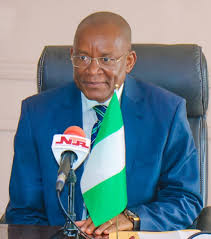
Business
NGA Becomes Official Partner To 29th Gas Conference … As President Set To Address 2025 World Summit
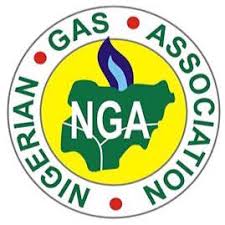
-
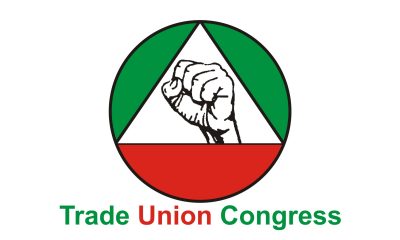
 News1 day ago
News1 day agoTUC Rejects VAT Hike, Urges Pro-people Tax Reforms
-

 Business1 day ago
Business1 day agoCBN Predicts 4.17% GDP Growth In 2025
-
Rivers1 day ago
100 Days: Omuma Council Boss Lists Achievements
-
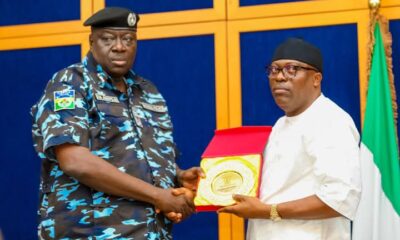
 Featured1 day ago
Featured1 day agoTinubu Pledges Peace, Justice, Development in Ogoniland….Fubara Lauds President on Peace Talks
-

 Featured1 day ago
Featured1 day agoFG, States, Local Govts Share N1.42trn In January
-
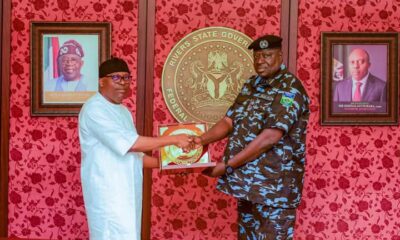
 News1 day ago
News1 day agoDon’t Attend Nocturnal Meetings To Declare War On Rivers, Fubara Tells New CP
-
News1 day ago
AUDA-NEPAD Nigeria To Electrify 1m Rural Communities In 2025
-

 online games16 hours ago
online games16 hours agoHow to Get Bonus at 1xBet Website?

